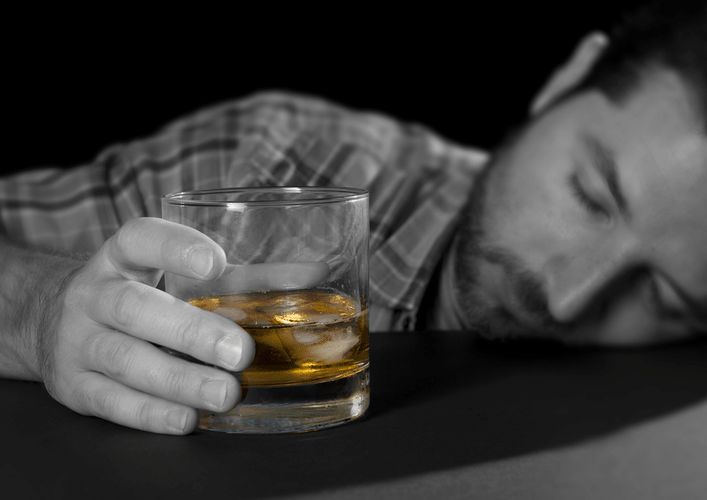Alcohol use can increase the risk of cardiovascular problems, cognitive decline, liver disease, mental health conditions, and more. When your drinking causes blackouts, the twelve steps alcoholics anonymous memory loss or sickness, it can significantly impact intimate activities. Drinking can take away the time and desire for sex and even lead to sexual dysfunction.
a higher risk of certain cancers, including those of the digestive tract (including colon cancer), breast, and liver
The present study examined the influence of relationship satisfaction on readiness-to-change alcohol use and the influence of hazardous drinking on readiness-to-change relationship issues in college student dating relationships. Participants were grouped on the basis of their scores on measures of alcohol use (hazardous drinkers vs. nonhazardous drinkers) and relationship satisfaction (high vs. low). Results indicated that alcohol use was negatively correlated with relationship satisfaction. Furthermore, hazardous drinkers with high relationship satisfaction indicated more readiness-to-change alcohol use than hazardous drinkers with low relationship satisfaction. Alcohol problems were not related to readiness-to-change relationship issues. These findings indicate that highly satisfied dating relationships during college may positively influence readiness-to-change heavy drinking habits among college students.
crucial questions to ask if you’re addicted to opioids after surgery
Previously, reviews of alcohol interventions have focused exclusively on the individual or relationship level – in other words – an individual or couple treatment for alcohol dependency. This model suggests that interventions where alcohol is responsible for domestic violence needs to happen at a community level and the wider population and not just on a one-on-one or couple basis. When alcohol dependence eventually becomes one of the main reasons for fighting or arguing, the conflict leads to more substance use as a way of reducing tension, conflict about the substance use escalates; thus more drinking occurs, and so on. Couples where one partner abuses alcohol has a very tough time getting breaking free from this downward spiral – however, all is not necessarily lost. There are many proven ways to combat this cycle of abuse – allowing the abuser and their relationship to recover.
Press Play for Advice on Preventing Addiction
Alcohol can have a huge impact on the way you interact with others and the quality of your closest relationships. Individual and couples therapy can equip you with the perspective, tools, and resources you need to embrace a healthier relationship with yourself, your partner, and alcohol. For one, “Birds of a feather flock together.” If you’re a heavy drinker, you may spend more time with (and date) those who do the same. The same amount of alcohol is likely to have a bigger impact in your 60s or 70s than it did in your 20s.
Those drinking more than 25 drinks per week could expect a shorter life expectancy by four to five years
While this can feel good for a short time, this effect doesn’t last for long. The feelings of bliss wear off, and they can worsen your depression symptoms. If you notice some of the warning signs mentioned above, it may be time to take a closer look at the role alcohol is playing in your relationship and seek support. When drinking becomes the focal point of every activity, alcohol addiction is a concern.
While moderate alcohol consumption may provide temporary relief, excessive drinking can lead to dependence, mental health issues and a decline in overall quality of life. It’s important to seek healthy coping strategies and support for managing both physical and emotional aspects of the disease. We often think about how drinking can affect our romantic relationships, but may not consider how it affects our friends difference between crack and coke and family. More specifically, a parent’s drinking can significantly impact their child. However, if a parent struggles with alcohol use disorder, it can cause instability in the household, and harm parent-children bonds. The Adverse Childhood Experiences Study shows that children of parents with a substance use disorder are more likely to experience physical and mental health problems throughout their life.
Alcohol is a CNS depressant that can affect your ability to regulate emotions and keep a check on impulses. For some people, these effects on the brain create noticeable personality shifts while drinking. These support groups can serve as a source of stability, resources, and advice for people who have loved ones who are struggling with alcohol addiction. In addition to finding people who have had experiences similar to our own, we can learn more about how to care for our own health and well-being. While you won’t develop a “new personality” when you drink, it can influence your mood, judgment, insight, and behaviors in the short term.
- One place to start is with your doctor, who can help you come up with a plan.
- If you’ve noticed that you’re only doing activities with your partner that involve alcohol, try to find other ways to spend time together without drinking.
- By Geralyn Dexter, PhD, LMHCDexter has a doctorate in psychology and is a licensed mental health counselor with a focus on suicidal ideation, self-harm, and mood disorders.
- They can also recommend treatment programs that may help with detox and recovery.
- If you think you may have alcohol use disorder, consider speaking with a healthcare or mental health professional.
That said, it’s important to note that not all problem drinkers are alcoholics. In general, someone who is a “problem drinker” doesn’t necessarily need medical treatment, intervention, or peer group support to quit. For men, moderate drinking is defined as consuming up to two drinks per day, and for women, it’s up to one drink per day. Being able to identify the types of alcohol problems will help you have a better understanding of your relationship with drinking. Separate from alcoholism or alcohol dependence, alcohol use disorder is characterized by problem drinking that becomes severe, eventually leading to adverse social, occupational, or health consequences.
If you think alcohol may be affecting your relationships, it might be a good idea to consider speaking with a healthcare or mental health professional. They can help determine whether what you’re experiencing is alcohol use disorder and recommend further evaluation or treatment if necessary. When paired with problems that can also arise from excessive alcohol use, drinking can sometimes negatively affect our relationships with the people closest to us. Living with a chronic condition like psoriatic arthritis can be challenging, and it’s important to seek support from health care professionals, support groups, friends and family. If you find it difficult to reduce alcohol consumption on your own, consider seeking help from a counselor or support group specialized in alcohol-related issues.
As the problem becomes more severe, people with the condition may withdraw from loved ones or lash out at those who try to help. If you’re not sure where to start, you can check out Psych Central’s hub on finding mental health support. Drinking alcohol can impact your mood and behavior, making it appear as though your core personality has changed. If you’re able to reduce your drinking, your brain function may recover in the first few months, he says. But, in any case, there’s no doubt that alcohol can have an impact on how your brain functions, both in the short-term and the long-term. Peaks Recovery provides accommodating support for individuals who may be experiencing some obstacles in their recovery journey or are looking for a step down from an inpatient program.
A 2013 study found that of the 52 people who participated, over 34 of them (that’s more than 60%) noted that substance use was a factor for separation. This was especially true in cases where the partner esgic butalbital acetaminophen and caffeine capsules refused to acknowledge an issue or get help. Alcohol can affect not only your ability to be intimate with your partner but also the way you interact with your partner sexually, according to a 2020 study.
And it’s up to you and your partner to decide if and how alcohol can maintain a place in your relationship. The good news is that cutting back on your consumption offers far more benefits than the challenges it may present . And just imagine how nice it would be to never have to live through another hangover. Changes in your personality can cause you to interact differently with the people around you — and not always for the better.
Alcohol use, especially when it’s excessive, can put a strain on your relationship with your intimate partner or spouse. Alcohol can affect relationships in various ways, and this can look different for each person. But for many people, it can also be a source of conflict in their relationships.
If excess drinking continues to progress, you risk moving to severe alcohol use disorder, which can lead to alcohol dependence or alcoholism. Support groups can help people with alcohol addiction and those who are codependent on someone with alcohol use disorder. A 12-step support group can often help people recover from a codependent relationship. Other support groups are available for family members who need help navigating the challenges that occur from alcohol addiction. Those who prioritize the needs of their partner above their own often suffer from mental health issues like depression and low-self esteem.







